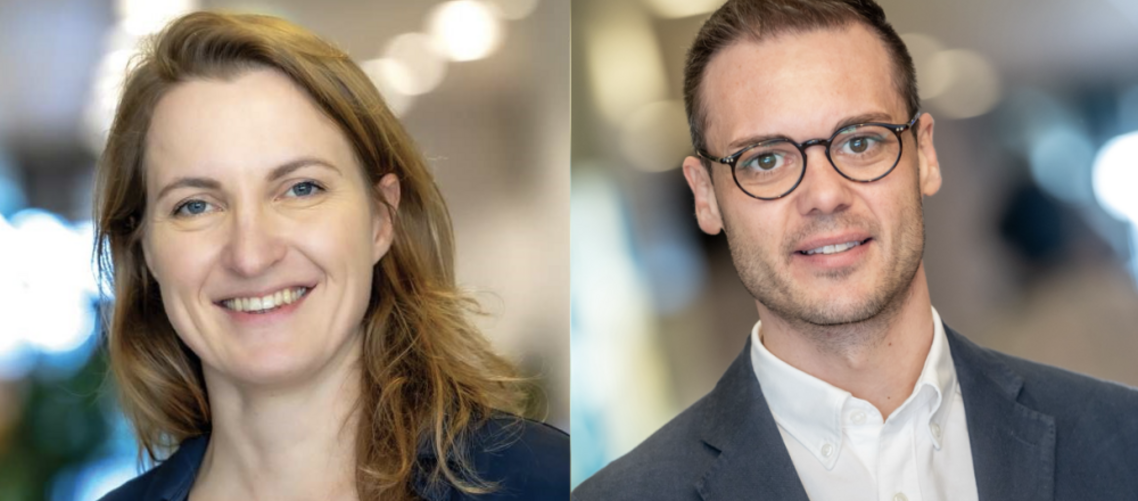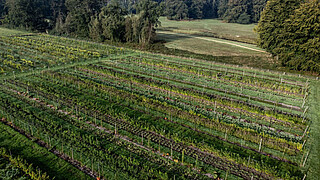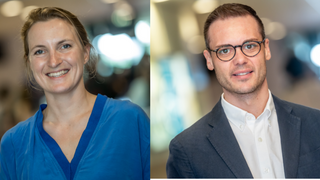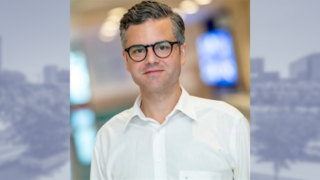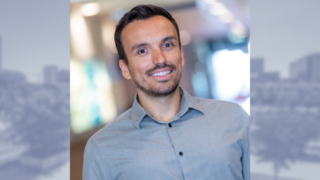The Dutch government heavily invests in infrastructure to mitigate climate-related risks such as rising sea levels and large-scale flooding. “But banks, insurers and real estate investors agree that household-level climate change adaptation is required to complement governmental risk mitigation efforts,” says Dr Krefeld-Schwalb, adding that, for example, homeowners can reduce the physical risk of flooding by wet-proofing and dry-proofing houses, thereby substantially lowering the economic impacts of flooding. “Many Dutch citizens aren’t aware of the risks they are exposed to,” she says.
Systematic and individual change
The researchers say that introducing a climate risk label (“klimaatlabel”) offers a promising tool for risk transparency, motivating and empowering individual homeowners to take actions that complement public intervention. A climate risk label can be seen as an individual and systematic intervention to create behavioral change.
The potential benefits of a successful climate risk label are personal and financial. “The societal relevance of our project lies in enhancing the homeowners’ ability to make informed decisions about adaptation measures and property investments, as well as ensuring equitable access to safe and climate-resilient housing,” says Dr Krefeld-Schwalb. However, she adds that introducing the risk label also brings new challenges that must be thoroughly examined, especially given the high climate risks in some areas. Climate risk labels must manage the balancing act between efficiently communicating risks to homeowners — thereby initiating mitigation action — and avoiding panic among homeowners and investors about the potential loss of real estate’s value and the consequences for the Dutch economy. “The individual behaviour change must be embedded in and cushioned by broader system change,” says Dr Gabel.
Actionable policy recommendations
The researchers aim to understand how such a label would affect individual action and responsibility, as well as systematic changes in property values, community dynamics, and housing affordability. This includes designing and implementing a climate risk label that protects individual homeowners and fosters resilience in the Dutch economy.
The 2.5-year project integrates multidisciplinary academic perspectives and methodologies — flood risk analysis, economic modeling, and behavioral science — and practitioners' expertise — insurers, bankers, builders, and building surveyors — to construct a comprehensive understanding of market behaviours in the context of climate labelling, and design a label that transparently communicates the risk while providing actionable insights.
Ultimately, the researchers aim to provide a reliable basis for actionable policy recommendations for designing and implementing a climate risk label. Their multidisciplinary research approach uses survey research, lab experimentation, field experimentation, and predictive modeling. The three principle investigators are Dr Krefeld-Schwalb, Dr Gabel and Prof. Filatova. Team members also include RSM’s Dr Bram Van den Bergh, and Dr Robin Nikolai from HKV.
Convergence Resilient Delta
Convergence Resilient Delta’s mission is to design resilience solutions in the Rotterdam delta for implementation around the globe. Its aim is to develop an integrated approach to address the major societal issues increasingly confronting the Rotterdam region, such as rising sea levels, poverty and inequality, air pollution, population density and major technological changes. Resilient Delta aims to be a pioneer in designing solutions to the pressing societal issues related to the major transitions of our time. The convergence between the institutions involved, with their close physical proximity and complementary expertise, will allow for long-term resilience solutions for the challenges of the delta.
Dr Krefeld-Schwalb
Dr Antonia Krefeld-Schwalb’s research lies at the intersection of cognitive science and marketing. She uses methods from cognitive science, such as process measurements (mouse and eye tracking) and computational models to gain an understanding of consumer behaviour and managerial decision-making. Dr Krefeld-Schwalb optimises methods to predict behaviour outside of the experimental laboratory.
Dr Sebastian Gabel
Dr Sebastian Gabel earned a PhD in marketing in 2019 from Humboldt University of Berlin, School of Business and Economics. His research focuses on the intersection of quantitative marketing, machine learning and econometrics. Dr Gabel also collaborates with leading retailers and marketing solution providers to design and implement advanced machine learning systems for scalable and automated marketing personalisation. His research has helped firms to increase their revenue, return on advertising spend, and conversion rates.
Professor Tatiana Filatova
Prof. Tatiana Filatova is professor of computational economics at TU Delft’s faculty of Technology, Policy and Management. Between 2009-2015 she joined Deltares as a water economist. She leads the Dutch 4TU research programme on resilience engineering, and serves as the academic lead of the climate change governance theme of the TU Delft Climate Action Programme. Prof. Filatova is a member of the Social Sciences Council of the Royal Netherlands Academy of Arts and Sciences).
